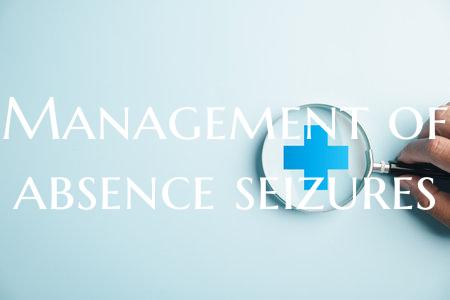
Management of absence seizures
Absence seizures, also known as petit mal seizures, are a type of generalized seizure characterized by a brief loss of consciousness or awareness. They typically last for a few seconds to half a minute, during which the person may appear to be staring blankly into space. Managing absence seizures involves a combination of medications, lifestyle modifications, and monitoring to help control and minimize the frequency and impact of these seizures.
1. Consultation and Diagnosis - It is crucial to seek medical advice if you suspect you or someone you know is experiencing absence seizures. A neurologist will conduct a thorough evaluation, which may include EEG testing to confirm the diagnosis and identify any underlying causes.
2. Medication - The primary treatment for absence seizures is typically anti-seizure medications such as ethosuximide, valproic acid, or lamotrigine. These medications help prevent the electrical activity in the brain that triggers seizures. It is essential to take the prescribed medication regularly and according to the doctor's instructions to effectively manage the seizures.
3. Lifestyle Modifications - Establishing a healthy lifestyle can also help in managing absence seizures. This includes getting an adequate amount of sleep, reducing stress, and avoiding triggers such as flashing lights or rapid breathing techniques that may induce seizures in some individuals.
4. Regular Monitoring - It is important to monitor seizure activity and keep track of any changes or patterns. Keeping a seizure diary can help identify triggers or patterns that may be contributing to the seizures. Regular follow-up visits with the neurologist are essential to review progress and make any necessary adjustments to the treatment plan.
5. Education and Support - Educating oneself and loved ones about absence seizures can help in understanding the condition better and knowing how to provide support during and after a seizure. Support groups or counseling can also be beneficial in coping with the emotional and psychological aspects of living with seizures.
6. Emergency Preparedness - In the event of a seizure, it is important to know how to respond appropriately. This includes ensuring a safe environment, placing the person in recovery position, and timing the duration of the seizure. If the seizure lasts longer than usual or is accompanied by other concerning symptoms, seek immediate medical assistance.
By following these management strategies and working closely with healthcare providers, individuals with absence seizures can effectively control their condition and improve their quality of life. It is essential to prioritize self-care, adhere to the treatment plan, and seek help when needed to navigate and manage absence seizures successfully.